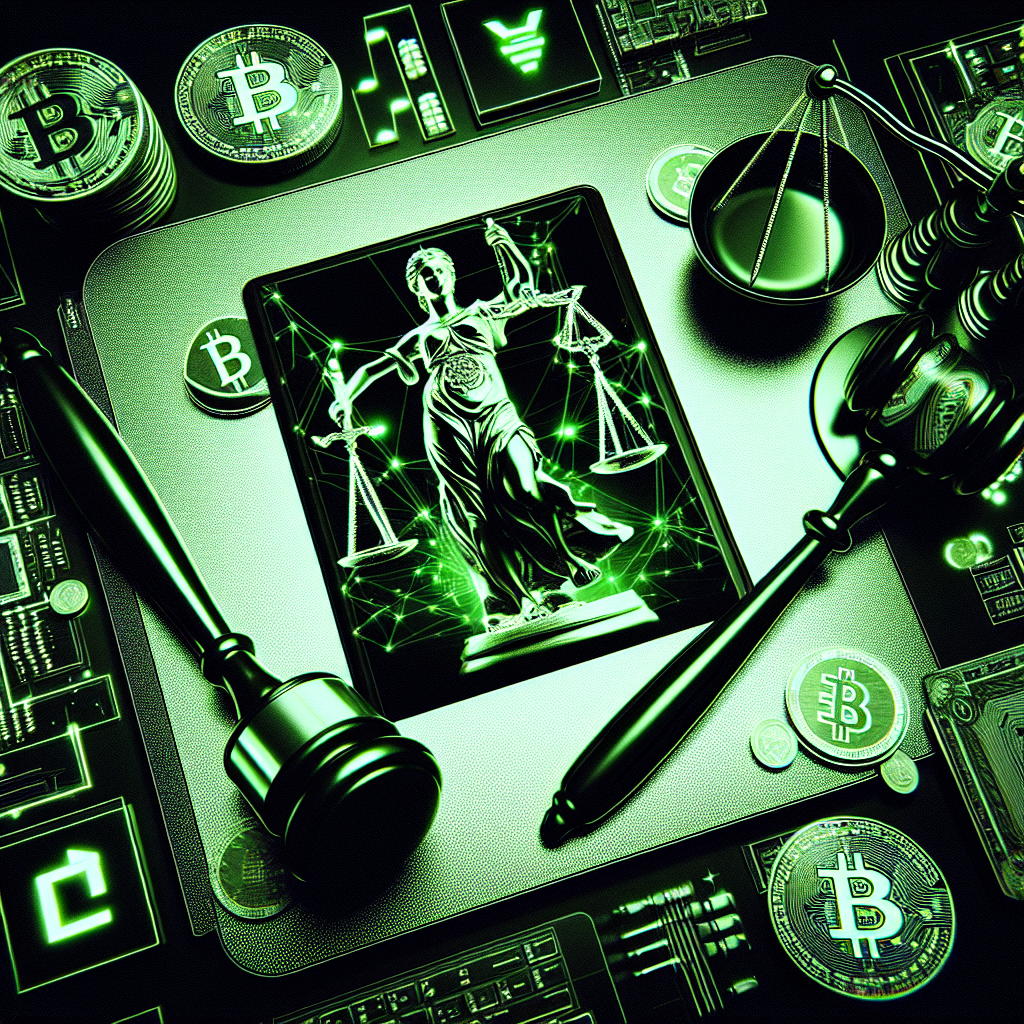In a bold move that underscores the ongoing battle over intellectual property in the cryptocurrency world, Coinbase, the prominent US-based cryptocurrency exchange, has initiated legal action against a German national. The core of the case revolves around the domain coinbase.de, which Coinbase accuses the defendant of cybersquatting—a tactic where individuals register internet domains that closely resemble established brands with the intent to profit from their goodwill. This story highlights both the challenges and the strategies that companies in the cryptocurrency space must navigate in a rapidly evolving digital landscape.
On Thursday, Coinbase filed the lawsuit in a federal court located in California, naming Tobias Honscha from Isernhagen, Germany, as the individual in question. According to Coinbase, Honscha has been engaging in a deceptive attempt to profit by misusing the well-established brand of Coinbase. The exchange claims that he redirected users from the misleading domain to an application associated with trading physical coins, effectively leveraging the company’s brand for his own gain.
Coinbase’s lawsuit outlines a series of startling allegations. It is asserted that Honscha not only misused the domain but also profited through an affiliate program, which is strictly against the company’s terms of service. “Coinbase recently became aware that Honscha is using and trafficking in the domain coinbase.de in bad faith to capitalize on the goodwill that Coinbase has developed in the Coinbase name over the past decade,” the legal complaint states. This raises serious questions about the implications for consumers who trust the integrity of a brand, especially in an industry that can be rife with fraud and phishing threats.
The practice of cybersquatting can lead to significant consumer confusion and potential phishing attempts. According to the lawsuit, Honscha allegedly went so far as to threaten Coinbase with potential harm unless they purchased the domain from him. This included vague warnings about risks such as phishing attacks and unsolicited document submissions should the company refuse to comply. Coinbase interpreted these threats as an attempt to extort the company, pushing it into a corner to secure the domain to mitigate risks to its users.
The exchange’s reaction to this situation highlights a crucial point about the intersection of branding and cybersecurity in the cryptocurrency field. By warning Honscha to cease using the affiliate link, Coinbase claims that he swiftly redirected the domain to a mobile application for trading physical coins, further complicating the scenario. To add to that, Honscha allegedly also ran an email service associated with coinbase.de, increasing the likelihood that unsuspecting users might mistakenly believe they were interacting with the official Coinbase platform.
The current status of the domain reveals yet another twist: it now redirects visitors to a coin collectors’ forum, where Honscha is noted as the responsible party. He has yet to publicly respond to the lawsuit or its claims. Coinbase is pursuing multiple legal remedies, including damages, forfeiture of profits obtained from the domain, and a complete cessation of Honscha’s use of it, along with ownership of the domain itself.
This case comes at a time when Coinbase is making headlines as it was recently recognized by TIME as one of 2025’s 100 Most Influential Companies, a testament to its significant role in shaping digital asset policies and markets in the United States. The exchange is also noted for its vigorous advocacy in Washington, which has spotlighted its expanding influence within the cryptocurrency sector.
Moreover, Coinbase’s stock has seen remarkable growth this year, with a notable 42% increase, soaring from approximately $303 to a peak near $382. Such developments illustrate the rising stature of the exchange amidst ongoing legal and regulatory challenges. The outcome of this lawsuit could have lasting implications for how brands protect their intellectual property rights in the digital age.
In this ever-evolving landscape, it raises critical questions: How will the legal battle over coinbase.de unfold? What measures will companies take to safeguard their brands against similar threats in the future? The cryptocurrency community watches closely, as the outcome may not only affect Coinbase but also set precedents for the broader industry.
As this story develops, many in the crypto space are eager to see how Coinbase navigates this challenge. It’s a reminder that in the world of digital finance, protecting one’s brand is as crucial as the underlying technology. For more insights on the latest trends and news in cryptocurrency, stay tuned and engage with us as we keep you informed.
